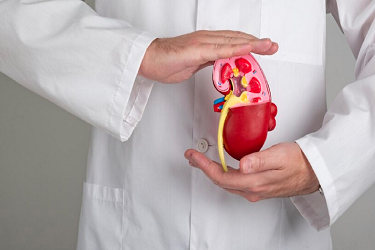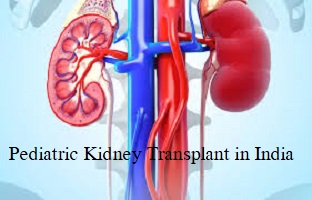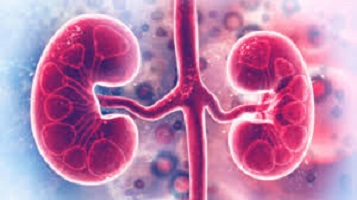
Next-Gen Innovation in Kidney Transplantation in India
Importance of Kidney
Two bean-shaped organs roughly about the size of a fist located below the rib cage are essential organs of the human body.
Kidneys remove wastes and extra substances from your body from the blood to form urine. Some of the primary functions of the kidney are:
- Helps in Filtration
- Regulates Blood Pressure
- Helps in the formation & maturation of Red Blood Cells
- Balances body’s PH level
Rise in the cases of Chronic Kidney Disease
What is Chronic Kidney Disease (CKD)?
CKD is a long-term threat to your kidney in which it loses the ability to do its primary functions effectively. It can even affect the surrounding organs.
The root cause of CKD includes:
- Diabetes
- High blood pressure
- Tumor or cancer
- Rare diseases (Polycystic Kidney disease)
- Lupus nephritis & Other Immune Disorders
- Other factors like age, obesity, and certain medications like Over-the-counter pain relievers.
How to recognize the symptoms of CKD?
CKD symptoms are often unnoticeable and keep on building over time. When the kidney gradually starts dysfunctioning, you will begin to notice the symptoms (The advanced stage).
As kidney function starts declining, the risk factors start increasing. Worldwide people are suffering from CKD but they didn’t even know about it.
Symptoms of CKD include:
- High blood pressure(Hypertension)
- Anaemia(not having healthy RBCs)
- An urge to pee more frequently
- Bone weakness
- Nutritional deficiencies
- Damage to nerves
- Edema(Swollen ankles)
- Fatigue
- Skin darkening
- Muscle cramps
What are the available methods for diagnosing and treating CKD?
There is no cure for CKD at present, but several precautions can be followed to keep the disease in control, preventing it from progressing and worsening. The kidney that reaches its end stage must undergo dialysis or a kidney transplant. The doctor may recommend blood and urine tests to check for kidney damage.
Your doctor may prescribe medication to maintain the health of your kidneys and prevent further damage. Additionally, they may suggest lifestyle changes such as incorporating regular exercise and maintaining a balanced diet.
Type of treatments available for kidney failure in adults
- Kidney failure treatment with Dialysis
Understand the workings of dialysis
Dialysis is a treatment that mimics or copies the functions of the kidney. Its purpose is to filter out waste and extra fluid from the bloodstream which helps to prevent any serious complications in the body.
Types of dialysis
- Hemodialysis: This type of dialysis happens either at hospitals or dialysis centers. During dialysis, a catheter is used to filter extra waste and water from your blood. The cleaned blood is then returned to your body.
It’s like having an artificial kidney. This treatment usually takes a few hours, and one needs to do it a few times a week.
- Peritoneal Dialysis: This type of dialysis involves a painless catheter in your belly to cleanse your blood with a special fluid. One can do it at home without a machine.
Advantages and Disadvantages of Dialysis
Dialysis is a life-saving treatment for those with end-stage renal disease (ESRD) or severe kidney dysfunction. Though dialysis has proven to be an important intervention, it has both benefits and drawbacks.
Some of the advantages of Dialysis include:
- Longer life expectancy
- Better Blood Pressure Control
- Minimizes Anemia
- Flexible Treatment Options
- Reduced Swelling
- Better Heart Health
- More flexibility
Dialysis is unquestionably a life-saving treatment for people suffering from severe renal disease. However, there are certain disadvantages of dialysis, such as:
- Time-Consuming
- Strict Food Restrictions
- Risk of Infections
- Itching and Skin Problems
- Emotional Challenges
- Limited Travel Flexibility
- Potential for weight gain
- Electrolyte Imbalance
- Kidney failure treatment without Dialysis
Dialysis is not a permanent solution for end-stage renal disease (ESRD) or chronic renal failure (CRF) patients.
If you have ESRD, you will require dialysis to survive, and a kidney transplant can eliminate your dependence on a dialysis machine for the rest of your life.
Considering a kidney transplant for a better life, makes you feel healthier and happier.
What is a kidney transplant?
During kidney transplantation, a functioning kidney from a deceased or living donor is transferred to a recipient who has a non-functioning or failed kidney.
Comparison between Living Donors vs. Deceased Donors
- Living Donor Transplantation: Living donor transplantation provides better outcomes, reduces the risk of rejection, and avoids a lengthy waitlist. However, potential donors must undergo thorough evaluations and may experience emotional stress and financial costs.
- Deceased Donor Transplantation: Deceased donor kidneys are highly beneficial for organ transplantation, as they increase the number of available donors. However, availability is limited due to factors such as consent rates and the prevalence of brain death. Nonetheless, deceased donor kidneys remain a valuable life-saving option for many in need.
Latest Innovation in Kidney Transplants
In recent years, there has been remarkable progress made in transplant techniques. These advancements have broadened the range of available donors, enabling people with incompatible blood types (ABO incompatible) or different tissue types (HLA incompatible) to receive a critical kidney transplant.
- ABO Incompatible Kidney Transplant: Medical advancements now allow patients to receive a kidney from a donor with a different blood type. In the past, it was impossible due to the immune system’s rejection response. This innovative procedure decreases antibodies and prevents rejection, making it possible for patients to find a living donor, like a family member or friend, who may not have the same blood type and receive a life-saving transplant.
- HLA Incompatible Kidney Transplant: In the past, a perfect match between donor and recipient was necessary for a successful transplant. However, new techniques have been developed that allow patients to receive a kidney, even if it’s not an exact match. HLA-incompatible kidney transplants involve special treatments to minimize the risk of rejection. Although there is a little increase in risk with this technique, it has enabled recipients to receive a kidney from a living donor even if they are not a perfect match, such as a family member.
Long-Term Outcomes of Kidney Transplantation
- Better Quality of Life
- Improved Kidney Function
- Freedom from Dialysis
- Lower Risk of Death
- Lower Healthcare Costs
The success rate of Available Treatments for Kidney Transplantation in India
Kidney transplant success rates in India are high. Living donor transplants have better success rates than deceased donor ones. Immunosuppressive medication and expert medical teams are important. Follow-up care and proper management of complications are essential for long-term success. Infections and lifestyle can impact success rates. Patient compliance with medication, lifestyle changes, and follow-up visits is also very important.
In India, kidney transplant surgical treatment is often performed in two methods:
- Laparoscopic Donor Nephrectomy
- Robot-Assisted Kidney Transplant
Best 5 Kidney Transplant Hospitals in India
- Fortis Healthcare
- Medanta – The Medicity
- Manipal Hospital
- Max Super Speciality Hospital
- Apollo Hospitals
Best 5 Kidney Transplant Doctors in India
- Dr. Sandeep Guleria
Hospital: Indraprastha Apollo Hospitals
- Dr. Rajesh Ahlawat
Hospital: Medanta: The Medicity
- Dr. Waheed Zaman
Hospital: Max Super Specialty Hospital
- Dr. B Shiva Shankar
Hospital: Manipal Hospital
- Dr. Saurabh Pokhriyal
Hospital: Manipal Hospital
Affordable Cost of Kidney Transplant in India
Factors that influence the cost of a kidney transplant in India are as follows:
- Admittance fees
- Surgeon fees
- Patient’s age
- The patient’s Medical Condition
- Complications post-surgery
- Other lab or examination tests, such as X-rays, ECGs, and so on.
Pre-Surgery cost
1000-1500 USD
Total Surgery cost(Patient+Donor)
12500-13500 USD
Frequently Asked Questions (FAQs)
1. Is kidney transplantation safe?
Yes, it is considered a safe procedure. Advancements in medical technology and immunosuppressive medications have improved transplant success rates.
2. How long does a transplanted kidney last?
It depends from person to person. A kidney transplant from a deceased donor typically has a lifespan of approximately 10 to 15 years, but if the kidney is obtained from a living donor, it can potentially last even longer.
3. What is the waiting time for a kidney transplant?
The wait for a kidney transplant varies based on factors like blood type, tissue match, and donor availability. It can last from a few months to a few years.
4. What are the nutrition tips for individuals preparing for a kidney transplant or post-transplant?
For individuals preparing for a kidney transplant or post-transplant, it is important to maintain a healthy and balanced diet. It is important to stay hydrated and avoid sugary drinks.
5. Is there any financial aid or insurance coverage available to help with the expenses of kidney transplantation??
Yes, there are financial aid and insurance coverage options available to help cover the expenses of kidney transplantation.
Al Afiya Medi Tour leading healthcare and best medical tourism company in India. Al Afiya Medi Tour offers medical tours from all the countries of the world to India. Some of the main countries are Bangladesh, Iraq, Malawi, Zambia, Namibia, Kenya, Nigeria, and many more. If you are searching for a top medical tourism company in India then Al Afiya Medi Tour is the best India medical tourism company for you. We help you in finding the best hospital and top doctor for the treatments in India. We assist in bone marrow transplant in India, lung transplant, kidney transplant cost in India, skin cancer, liver transplant in India, stomach cancer, blood cancer treatment in India, ovarian cancer treatment cost in India, breast cancer treatment, shoulder replacement surgery cost India, organ transplant, hip replacement surgery in India, cancer hospital in India, best hospital for heart valve replacement in India etc. at affordable cost in India.






